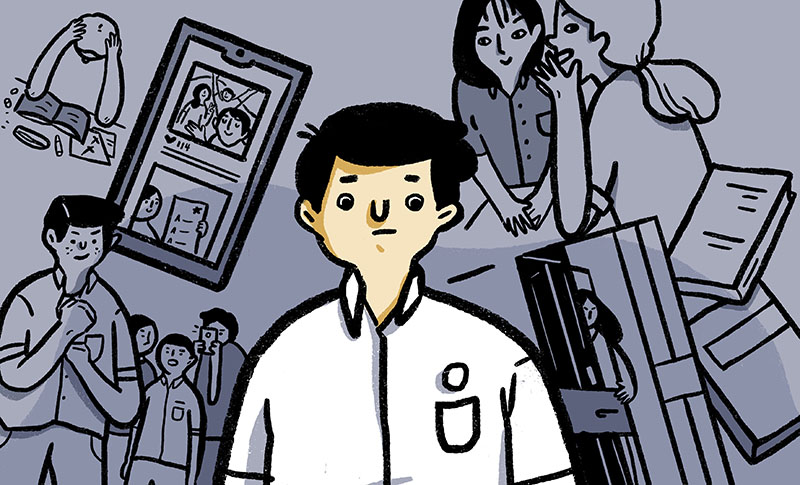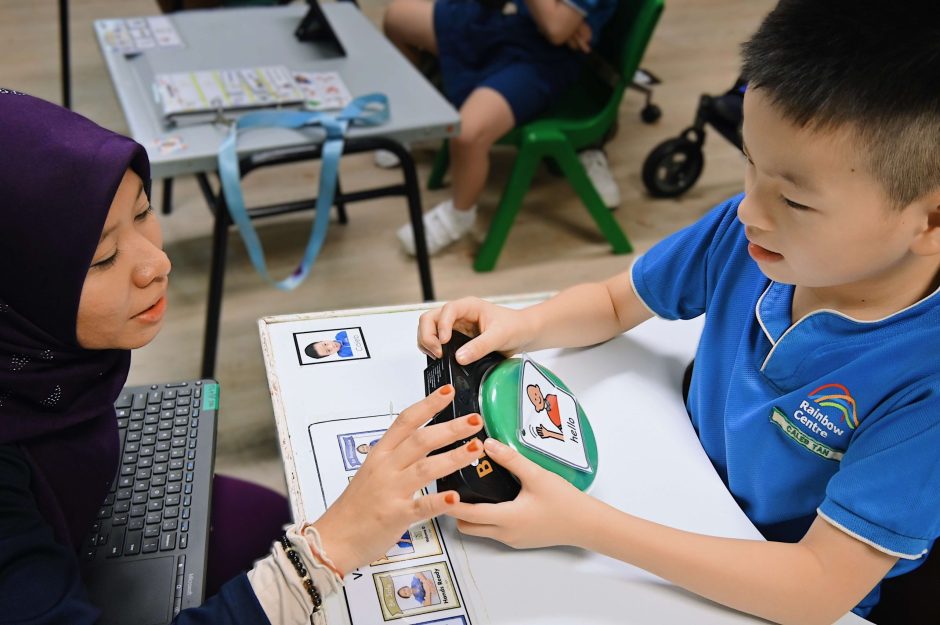Growing up, my family spoke Malay at home and it continues to be the language of family and familiarity for me today.
From my student years, however, all the way to when I was a PhD student and started work as a social worker, the operating language was English, as well as any language that allowed me to connect better with the families I worked with.
One moment, I would be attempting Hokkien, another moment Mandarin. And of course, I would use Malay when visiting Malay families. Speaking in the language that is comfortable for those I was working with always facilitated the helping relationship.
It was around this time when I became a parent and started thinking of the language needs of my two children. As the Malay saying goes, Hilang bahasa, lenyaplah bangsa — language is a key to a deeper understanding of our roots and culture – and I wanted my daughter Lidia and my son Adli to experience Malay as a rich and living language.
My conversational ability at the time meant I had an arm’s-length appreciation for what was beautiful about the language and its literature. I knew it was there but was unable to point the way. Thanks to my wife Sadiah, who was a Malay language producer and presenter on TV and is now the museum coordinator for the Malay Heritage Centre, Malay gained some prominence in our home.
To ignite their interest, she would draw beautiful drawings to illustrate Malay proverbs, impressing Adli’s Malay teacher who subsequently asked if those illustrations could be shared with his classmates. Sadiah would also get Adli to appreciate the beauty of the language through traditional Malay songs (we know boys learn language differently from girls!).
As for Lidia, she always had the gift of the gab and picked up Malay in her toddler days. Her love for reading spurred her to love languages.
I was happy when she took up Higher Malay. Having more language classes meant more work, which was tough on her schedule, but she enjoyed them, along with learning more about the Malay culture and heritage. Her mother helped by researching on more complicated peribahasa (proverbs in Malay) for use in her essays.
All this brought out the beauty of my mother tongue, which has the ability to articulate deeper meaning succinctly and with subtlety, while conveying the values that the community holds dear. The languages of our heritage are powerful that way.
Appreciating one’s mother tongue from a younger age
This is one of the reasons I am energetic in my role as Second Minister for Education to support the introduction of Higher Mother Tongue Language learning at Primary 3 and 4 in all primary schools from next year.
This would apply to the learning of Higher Chinese, Malay and Tamil. Students who have the aptitude now start at Primary 5; starting at a younger age will give them a stronger foundation and a headstart in a lifetime of using and enjoying the language.
Higher Mother Tongue deepens our children’s knowledge and appreciation for the language of their culture and heritage and exposes them to ethnic literature. At the Ministry, we would like to see students pursuing it till A-Level and beyond, enabling us to develop subsequent generations of linguists to ensure our mother tongue languages continue to remain relevant and alive.
For example, at Westwood Primary School, one of the pilot schools where Higher Malay is offered at P3 and P4, I saw how students were learning about Malay music and traditional instruments too.
These efforts come on top of other Malay Language programmes that cater to students of differing language abilities, such as the Mother Tongue Support programme in primary school, and Malay Language Elective Programme in secondary school. In sum, they celebrate and sustain Malay as a living language in our homes, schools and community.
My own mother tongue journey
How did my Malay improve over the years? From sheer exposure and practice, as I interacted more and more with my Malay-speaking constituents. To be honest, having to appear on broadcast media was a real catalyst, as I had to do live interviews on radio and TV in Malay. I had to consciously improve my Malay vocabulary, read Berita Harian every day, and converse in Malay whenever the opportunity arose.
Of course, I have the good fortune of a great teacher at home – my wife would always help with my Malay speeches and train me on how to deliver them well!
There is an intimacy about speaking in a common language that strengthens identity, builds bridges and smoothens relationships.
I have found explaining Government policies in Malay to our Malay community particularly important. Common feedback is that government policies are complex to understand. When I meet our Malay residents and explain policies like CPF Life, Lease Buy-back, Medishield, or Full Subject-Based Banding in schools, they understand it better in Malay and appreciate the relevance of these policies to them. There are nuances that can better be articulated in Malay. This is something I have learnt and appreciate.
Interestingly and unexpectedly, my journey with Malay language has also led me to start writing puisi (a form of Malay poetry) for my wife, as an expression of my appreciation and love for her. I have always been inspired by Gurindam Jiwa, a famous Malay song that was printed on our wedding invitation card, almost 30 years ago. I am still a novice at it, but practice makes perfect, right?
As we say at the Ministry of Education, we want our students to learn for life. Through language, we also learn about life!



.jpg)


